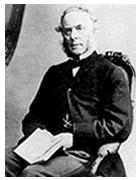1.
The Chinese, by their favourite system of dwarfing, contrive to make it, when only a foot and a half or two feet high, have all the characters of an aged cedar of Lebanon.
Robert Fortune
2.
As the lower parts of the Japanese houses and shops are open both before and behind, I had peeps of these pretty little gardens as I passed along the streets; and wherever I observed one better than the rest I did not fail to pay it a visit.
Robert Fortune
3.
The plants which stand next to dwarf trees in importance with the Chinese are certainly chrysanthemums, which they manage extremely well, perhaps better than they do any other plant.
Robert Fortune
4.
The main stem was then in most cases twisted in a zigzag form, which process checked the flow of the sap, and at the same time encouraged the production of side branches at those parts of the stem where they were most desired.
Robert Fortune
5.
We all know that any thing which retards in any way the free circulation of the sap, also prevents to a certain extent the formation of wood and leaves.
Robert Fortune
6.
One marked feature of the people, both high and low, is a love for flowers.
Robert Fortune
7.
The plants are principally kept in large pots arranged in rows along the sides of narrow paved walks, with the houses of the gardeners at the entrance through which the visitors pass to the gardens.
Robert Fortune
8.
The dwarfed trees of the Chinese and Japanese have been noticed by every author who has written upon these countries, and all have attempted to give some description of the method by which the effect is produced.
Robert Fortune
9.
Stunted varieties were generally chosen, particularly if they had the side branches opposite or regular, for much depends upon this; a one-sided tree is of no value in the eyes of the Chinese.
Robert Fortune
10.
Sometimes, as is the case of peach and plum trees, which are often dwarfed, the plants are thrown into a flowering states, and then, as they flower freely year after year, they have little inclination to make vigorous growth.
Robert Fortune
11.
Junipers are generally chosen for the latter purpose, as they can be more readily bent into the desired form; the eyes and tongue are added afterwards, and the representation altogether is really good.
Robert Fortune
12.
Nature generally struggles against this treatment for a while, until her powers seem in a great measure exhausted, when she quietly yields to the power of the art.
Robert Fortune
13.
There are about a dozen of these gardens, more or less extensive, according to the business or wealth of the proprietor; but they are generally smaller than the smallest of our London nurseries.
Robert Fortune
14.
A small species of pinus was much prized, and, when dwarfed in the manner of the Chinese, fetched a very high price; it is generally grafted on a variety of the stone pine.
Robert Fortune
15.
We are told that the first part of the process is to select the very smallest seeds from the smallest plants, which is not at all unlikely, but I cannot speak to the fact from my own observation.
Robert Fortune

